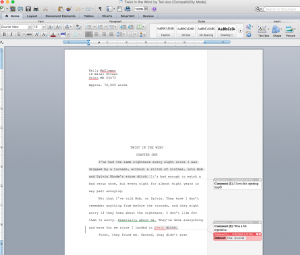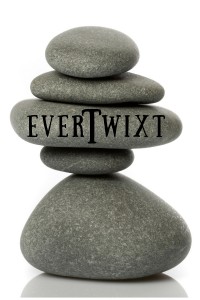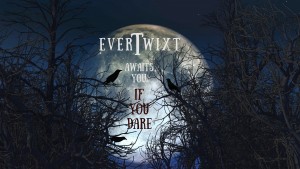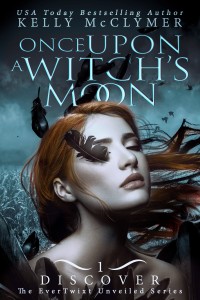I’m on a mission with my new Hack Your Muse initiative to help writers write when they want, how they want, what they want:
Kelly McClymer Books
I’m on a mission with my new Hack Your Muse initiative to help writers write when they want, how they want, what they want:

 This post is part of the Empowering the Goddess Within Blog Tour hosted by www.BraveHealer.com.
This post is part of the Empowering the Goddess Within Blog Tour hosted by www.BraveHealer.com.
Do you hesitatingly set ambitious goals for yourself every now again?
Me too.
About a decade ago, after I’d published ten novels, I began to look very hard at how to write a bestseller. It seemed like a reasonable ambition, not too much for a busy mom of three with a day job. After all, in my experience, novels are written in neglected, cobwebby corners of the day between dusk and dawn. No harm, no foul if I didn’t succeed. No one would even know what I was doing unless I succeeded.
 I had an idea I already liked, called (at the time) Twist in the Wind. It was a fantasy about a girl who could read thought dust (the leftover thoughts someone left after they touched someone). I’d written three chapters, and sent it to writer-friends for evaluation. They liked it, but…it was missing something that might make it a bestseller contender.
I had an idea I already liked, called (at the time) Twist in the Wind. It was a fantasy about a girl who could read thought dust (the leftover thoughts someone left after they touched someone). I’d written three chapters, and sent it to writer-friends for evaluation. They liked it, but…it was missing something that might make it a bestseller contender.
I researched the bestselling fantasy books at the time and noticed there were a lot of mythic and fairytale connections. Cool. I liked myth. I liked fairytales (my first historical romance was titled The Fairy Tale Bride, after all 🙂
But I didn’t want to use just any old myth or fairytale. No. I wanted to go somewhere not too many people had gone. So I looked to see where the oldest fairytales may have originated. I settled on Baba Yaga. There isn’t much about her with that name, but when you immerse yourself in fairytales and female myth, you quickly see that Baba Yaga is in every goddess, fairy godmother…and evil witch…in the most compelling fairytales and mythic stories.
So I started revising my simple Twist in the Wind. And rewriting. And plotting and planning and outlining. Ten years, yo.
The story world grew into a trilogy. And then a trilogy of trilogies. And then a set of seven serializations. With a companion 1,000 short stories. All set in the EverTwixt world.
 EverTwixt was an official thing — but it was unleashed only in my computer, myriad notebooks, and my head. I didn’t see how I could ever unleash it out into the world. What had I done? This was too ambitious.
EverTwixt was an official thing — but it was unleashed only in my computer, myriad notebooks, and my head. I didn’t see how I could ever unleash it out into the world. What had I done? This was too ambitious.
I tried to stuff everything I’d unleashed back into a neat trilogy-shaped box. But, like Pandora, I couldn’t.
Belatedly, I realized I had awoken my Inner Wild Goddess. And she looked, sounded, and acted, a whole like Baba Yaga.
The breadth and scope of my idea began to confound me. Something like this can’t be written in the cobwebbed corners of the day. “I can’t do this, find someone else,” I pleaded with Baba Yaga.
The wild goddess blew a cold wind on my neck and haunted my nightmares. “Your quest is hardly begun. You need companions to keep your will strong. Have you learned nothing from all the myth and fairy tales I’ve sent you to guide you on your way?”
Obediently, with no idea how to do what she was asking me (writers write alone, for the most part), I reached out to find readers who might want to play in my world early on and help propel me through the dense fabric of the world I was creating from the strongest but most gossamer of story threads.
 I built an EverTwixt website and put up the first couple of episodes for free download. No one came.
I built an EverTwixt website and put up the first couple of episodes for free download. No one came.
Once again, I told Baba Yaga that I wasn’t up to the task. She laughed her weird, wild laugh and taunted me. “Did Cinderella make her dreams come true by staying home when I gave her what she needed to enjoy the ball?” she asked me. “You’ll have to leave your cobwebby corners and venture out into the wild of the world if you want to succeed at your quest.”
So I ventured out and began to pick up allies who had skills I did not. I joined a business accelerator program and learned what skills I would have to learn in order to create a stable, sustainable site. I joined a mastermind group to find allies who had woken their Inner Wild Goddesses and wanted to change the world as well. I talked to random readers and writers about my idea. I experimented with different marketing tactics and techniques to find the ones that might work for me.
I was proud of all that I had learned, even though I put little of it to practical use. Just like all the epic questers before me, I had gathered allies and knowledge about how to succeed. I had won — and lost — small battles along the way. I was epic. I was awesome. I was…
Baba Yaga laughed at me again. “You still have to launch to the world, you know. Only time will tell you if you will succeed in your quest.”
“I’m not ready,” I explained to her. “First, I’m going to create the most epic reader site ever known to readerkind, and then I’ll know enough to launch EverTwixt properly.”
Baba Yaga shook her finger at me. “You owe me. I whispered the truth to you until it became a fire in your veins. You must let it burn free, come what may.”
 EverTwixt is about to relaunch, with all that I’ve learned so far. It will be a soft launch because it turns out my Inner Wild Goddess has much bigger plans for me. She’s happy to let EverTwixt grow like a wild-seeded garden over time. Turns out my next big quest is to create that epic reader site with some very strong allies.
EverTwixt is about to relaunch, with all that I’ve learned so far. It will be a soft launch because it turns out my Inner Wild Goddess has much bigger plans for me. She’s happy to let EverTwixt grow like a wild-seeded garden over time. Turns out my next big quest is to create that epic reader site with some very strong allies.
But to do that, I have to let the seeds and early blossoms of EverTwixt free to spread themselves, however slowly.
My Inner Wild Goddess tricked me out of my cobwebby corner with a simple ambition, but I forgive her. I’ve met so many awesome allies along the way. I know there are more to come. Maybe my quest’s epic journey will not end with a bestseller. But maybe that was the only ambition Baba Yaga could hold out to pry me out of my cobwebby corner.
And now that I’m out…I’m not going back in.
Ray Bradbury has been quoted as saying, “I’m not in control of my muse. My muse does all the work.”
William S. Burroughs advised, “So cheat your landlord if you can and must, but do not try to shortchange the Muse. It cannot be done. You can’t fake quality.”
I know many writers shake their heads at the fanciful idea of a muse. They are motivated by the payment they expect for the work they produce. Some prop up bills to keep themselves writing.
That’s not me. And it is not many other writers I have had the privilege to meet along the writing path.
For me, writing requires an inner stillness. A listening for things that others cannot hear. These things are not random, though they may seem so at first. When I listen carefully, the things begin to chain together and make up a story for me to tell.
I do believe I have a muse, and that she comes when I reach that point of stillness that makes me ready to write the story of all these chained things that only I can hear. I don’t know whether the muse is intuition, insight, a gift from the gods, or a goddess in her own right. I don’t care, because I love my time with my muse and I have, over the three decades I’ve been writing, tried many things to lure her to me.
I have hacked my muse shamelessly over the years, by:
I have never gotten her drunk, though the more famous writers seem to have used mind-altering substances to help them call the muse. But those writers didn’t have normal family lives, or stay married to one spouse for decades, either. I’m a wife, a mom, a granny. I don’t just want to write, I want to change the world. I can’t afford the indulgence of drunk-writing with the muse. I don’t think she minds. But sometimes I wonder. If I did… What would happen?
In all my years of hacking my muse, I noticed something important only recently — my muse stops responding when I try to cheat her. Or, more properly, try to cheat the story that only I can hear. My muse allows no shortcuts or shortsheeting in the storytelling. I need to know why my characters do things, even if these things make no sense at all, or are not an important part of the story I think I’m telling.
My muse, on the other hand, doesn’t mind being hacked. In fact, I think she likes it when I begin a new ritual or try a new writing spot or technique. She tends to come quickly when I call her that way (rather than call her with the futile fishwife bleat of desperation that lacks all respect for the stillness).
Hacking has an element of respect built into it that cheating does not. And I respect my muse. She has brought me more stories than I’ll likely ever be able to tell in my lifetime. And still, I don’t know her as well as I’d like.
Recently, my muse revealed her name to me: Baba Yaga. Considering that I’m writing a huge fantasy series built around Baba Yaga and her home EverTwixt, you’d think that would have been obvious to me… oh, about ten years ago. But no. She didn’t reveal her name to me until I decided to play around with PlayBuzz and make a fun quiz for writers who might be interested in taking my “Hack Your Muse: Finish Your Novel in Eight Weeks” course.
What’s your muse’s name? Take the quiz and you just may find out.
If you really want to get to know your muse, try Meet Your Muse.

Many people, when they find out I’m a novelist, will say, “Oh I want to write a novel some day, when I find the time.”
I’ve learned that most of them mean in the same way that I mean it when I say, “I really want to learn another language.” The truth is, if I really wanted to learn another language, I’d do it. One day, I may. But right now, learning another language is not a priority for me. I never write anyone off as a future novelist. The thing about writing novels is that anyone can do it (no, it isn’t easy, it’s just that most humans response and react to story, so it calls to us like the sea, or the stars, or the mountain tops).
For some people. this call is impossible to ignore. Those people, eventually, write their novel.
You may be one of those people. If so, I want to let you know that you are not likely to find the time. If you really want to write a novel, you’ll have to make the time.
How do I know? Because I used to be someone who wanted to write a novel someday, when I found the time. I wrote lots of short stories. But I was afraid to start a novel, afraid I wouldn’t find the time to finish such an involved project. I had a job. A family. I was a part-time grad student (in English, and my thesis was to be a novel, so…duh).
I didn’t find the time to write my novel — until I made the time.
In the spirit of giving back, I used to teach an email class called “Finish Your Novel in 8 Weeks” through writersweekly.com. By that time, I’d made the time to write several novels, despite all the life distractions (school, work, children, a sabbatical that had me packing up and moving my family to Cleveland for six months…while telecommuting to my job back when telecommuting was a new thing).
I encouraged my students to do the hard work that is required to write a novel (we authors call it the Butt-in-Chair mindset). Some of my students did finish their novel draft, but most of them found it too difficult.
Recently, I decided to update the course and offer it through my website kellymcclymerbooks.com (which supports a robust Learning Management System for courses).
It was supposed to be a simple course, similar to the original course…but I don’t really do simple. Instead, I’ve created a course for people who really want to finish their novels.
Which leaves me with a big problem. I hope you can give me some advice to help solve that problem.
I need to find people who really want to finish a novel. Not people who aren’t ready to finish a novel. Remember, twenty years ago I used to be one of those people, so I’m not disparaging anyone. I get it. Life is…life.
As I retooled the Finish Your Novel in 8 Weeks course, and made a list of things I could offer through this course that I couldn’t offer through the email course years ago, I realized that if you’re the person who is ready to take my course, you are special. You don’t just dream of writing a novel, you have characters playing in your imagination as you go about your daily life. Your characters are demanding you write your novel. You need to write your novel. But you can’t find the time in your busy life schedule.
That’s where my Finish Your Novel in 8 Weeks comes into play. It’s for writers who are ready for a make-time-to-write coach every day for 8 weeks. This isn’t a course for dabblers. This is a course for people who are willing to make the time to actually write the gloriously messy first draft of their novel. We’re not going to talk about craft, we’re going to talk about getting the words on the page. Because, ultimately, that’s how every novel gets written: word by word, sentence by sentence, paragraph by paragraph, scene by scene, chapter by chapter. Until I realized that (yes, sooooo simple) fact, I did not tackle a novel.
And now I’m ready to share it with you, but if you’re truly ready to write a novel.
The course is close to done. At least, done enough for me to put it out there to get some eager students to kick the tires of the inaugural revamped version.
I’ve been thinking about who I want for students — and how to reach those students and (gently) turn away those who are not ready for the hard work required by an 8 week commitment to get the novel they dream of writing finished.
I am going to create a quiz and some guidelines so that only those who are ready for this course take it.
So here’s my question for you? How do I help you know you’re ready to make time, not wait around to find time?
 Should you outline your novel?
Should you outline your novel?If you’re thinking about writing a novel, you may be asking yourself that question. Here are some things to consider as you answer that question for yourself.
First, you do not need to outline a novel to write one. I did not outline my first novel. I just wrote it as it came to me, scene by scene, chapter by chapter, for 400+ pages.
That novel will never be published.
It was a great practice novel and there are many things I love about it, but it is an undisciplined mess that taught me a great deal about how to write a novel (and how not to write a novel).
For the next 20 novels, I have used many methods to outline, and I’ve come to know what I need in an outline — something brief, story-focused, and with lots of room to grow and change.
But my novelist friends are all different. Some have outlines so detailed that a ghost writer would be able to pick up the outline and finish the book should the author vanish into thin air. Others don’t outline at all, feeling it will trap them into a story they may not want to tell.
 What is an Outline?
What is an Outline?Please, throw away your picture of the outlines you may have been forced to do in school. There are no roman numerals required in a novel outline. You don’t even need to break things out into chapters if you don’t want to. A good novel outline allows you to sketch out the shape of your story, so that you can relax and know you’re going somewhere during the time you’re writing.
The best way to know if you should outline — and what kind of outline you’ll want — before you write is to think about how you navigate to a new place.
If you want to experiment with outlining, you are in luck. There are several excellent methods to try:
I like this one because it was designed by a physicist and my husband is a physicist, so I know how the scientist mind works. You may like the very structured approach.
This is the approach I often use. Robert Olen Butler wrote the book From Where You Dream about his fiction creation process, which he teaches at Florida State University. It’s a fairly simple method — you take a stack of 3×5 cards and sit at your desk imagining your story scene by scene. You write down a sentence or two about each scene on a card. Then, when you have a stack of cards, you start sorting through them (adding/subtracting cards) until you have a structure you like. When you have a structure you like, you begin to write.
When I first began to write, I looked forward to going to the library to peruse the new copies of The Writer and Writer’s Digest. Now a lot of those useful articles are online. Here’s one on outlining so you can write a novel in 30 days. Browse and use what works for you.
The one caveat I have for writers and outlines: Don’t get bogged down trying to do anything that interferes with your writing time. The only thing that actually gets a novel written is writing the scenes and chapters that you’ll share with your readers. Readers don’t actually want the outline, they want the fleshed out story.
I highly recommend this TEDTalk by Elizabeth Gilbert for writers who are serious about the craft and having difficulty increasing productivity during writing sessions (or creating time to write, period). And for moms who want to nurture the best in their children and themselves.
 My genius
My geniusI’ve been working on some authorpreneurial ideas for a few years and this talk really spoke to me, because it allows me to elucidate a skill I’ve recently recognized in myself — recognizing the genius in others.
I like the idea that genius is something outside of us, to be caught as it comes thundering, or whispering…or whining… by. Something we have to be open to receive. Something that we can dismiss one too many times and then find it doesn’t come by as reliably as we’d like. That mirrors my experience.
I’ve noticed, in other people, that they just seem apt at capturing something — or the nexus of somethings — other people are not. I see it everywhere. Once, a decade ago, I noticed that the crossing guard at my children’s school was a genius at communicating with cars. She directed traffic into and out of the entrance to school like a master conductor. I never wondered if she wanted me to stop, or to turn, or to scoot through so she could stop the car behind me.
I didn’t notice her particular genius, though, until she had a substitute who was not a genius at communicating with cars. He tried, but he wielded his stop sign with clumsy arm movements that left me wondering if he wanted me to stop or go — or if he was waving away a pesky fly.
I was glad when the crossing guard genius came back from vacation. Having noticed her genius, I watched to see what it was she did that made everything so easy to understand. I didn’t understand that I was opening myself to my own particular genius by studying her practicing her genius.
I was sad when she retired. There have been competent crossing guards in her wake, but so far, not one with her particular genius at the job.
Being able to see the genius at work in others played out often when I was raising my children. My daughter is a genius at people. One of my sons at video games and all things computer. My youngest at finding lost things (the intersection of the power of observation and long term memory).
I love to notice — and nurture, if I can, — genius.
I also love to give each of my characters their own little genius to guide them — or for them to ignore. My mystery shopping mom Molly has a genius for juggling work around family. She doesn’t always listen to it, though.
What are you good at? Are you comfortable calling it a genius? I’d love to discuss it further with you in the comments section.